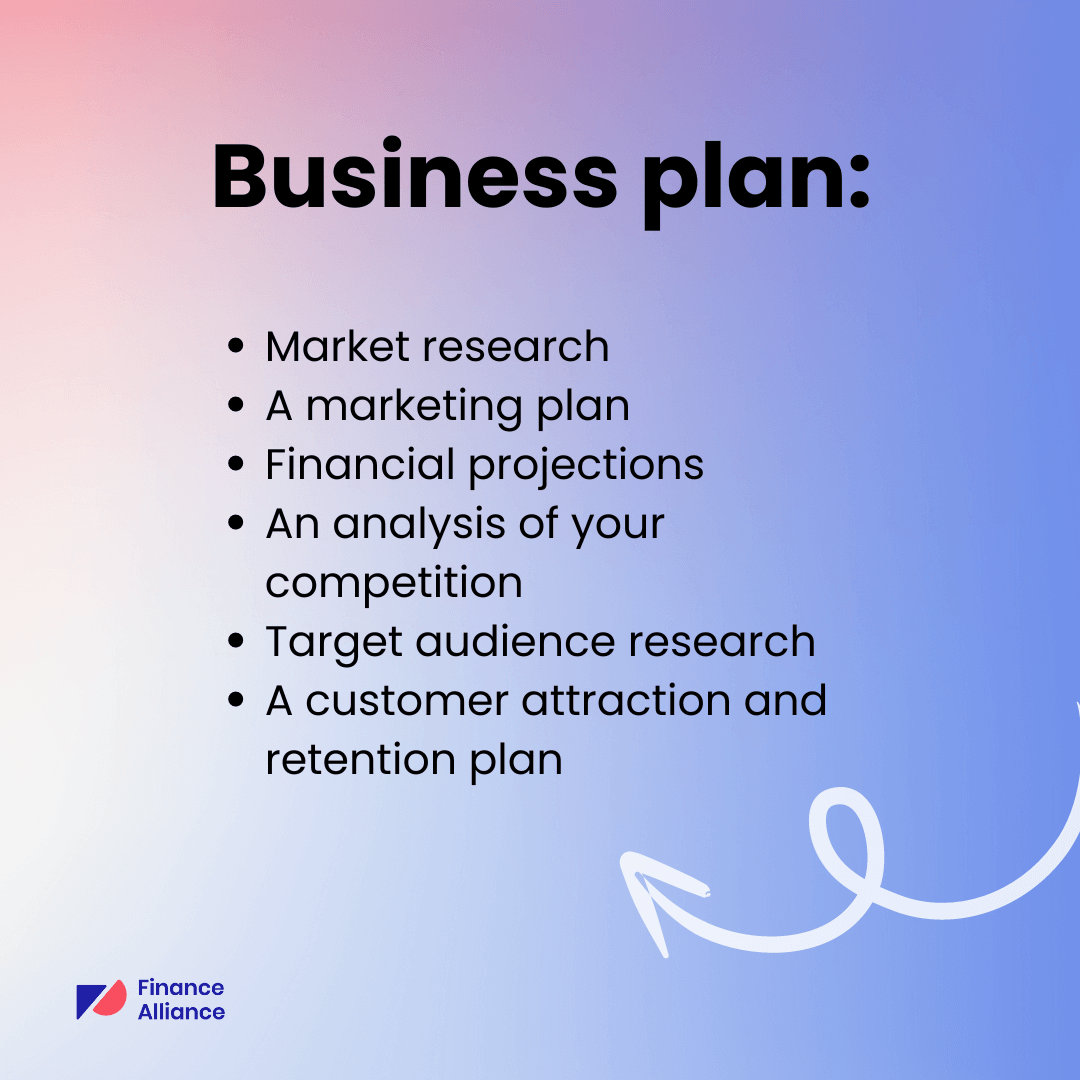Ready to move on from FP&A? Or maybe you’re simply curious about what you can do with FP&A experience. Either way, you’re not alone. Many FP&A professionals reach a point where they crave a new direction, and the good news is that having FP&A experience opens doors to a surprising variety of exciting careers.
In this article, we’ve curated a list of FP&A exit opportunities that cater to a wide range of interests, skill sets, and ambitions. From scaling the corporate ladder to venturing into the thrilling world of entrepreneurship, you’ve got more than a few options to choose from.
Intrigued? Keep reading to discover the best career paths for you after FP&A.
FP&A exit opportunities discussed in this post:
- Progressing within your current company
- Consulting
- Corporate finance
- Teaching and mentoring
- Entrepreneurship
- Investment banking
- Private Equity
- Venture capital
- Portfolio management

Psst! Why not download this article in eBook format, so you can always have these insights at your fingertips?
9 FP&A exit opportunities
There's a sea of opportunities waiting beyond the confines of your existing FP&A career.
Below, we take a closer look at some of the best FP&A exit strategies that can leverage your skills and propel you towards your dream career.
1. Progressing within your current company
Love your company culture but crave a new challenge? Consider aiming for a senior FP&A position internally. Leveraging your existing expertise and network within the organization allows you to seamlessly transition to a more strategic role, building upon your successes without the upheaval of a new company.
Here's how you can make it happen:
Chart your course
Identify your target senior FP&A role and develop the necessary skills through training, conferences, and online courses. Focus on areas like finance, data analysis, and leadership to become more valuable to your organization
Step outside your comfort zone
Put yourself forward for projects that showcase your capabilities and help you gain new experiences. This not only demonstrates your initiative and drive but also broadens your knowledge of the business and its various departments.
Network internally
Go beyond your desk and connect with colleagues across departments and levels. Attend company events, join internal committees, and strike up casual conversations with co-workers. Networking helps you gain visibility, learn about internal opportunities, and build a strong support system. about internal opportunities, and build a strong support system.
Seek feedback and mentorship
Regularly ask for feedback from your manager and colleagues to identify areas for improvement. Also, consider finding a mentor who can provide guidance, support, and valuable insights into the company's culture and expectations. Their experience and advice can help you navigate the corporate landscape and accelerate your career growth.
Showcase your achievements
Don't just track your accomplishments, quantify their impact on the business. Weave these success stories into conversations with your manager, both during performance reviews and casual interactions. Highlight how your contributions align with the company's goals and demonstrate your value as a high-performing employee. This not only reinforces your value to the company but also keeps your career goals on their radar.
Be proactive about promotions
Don't wait for opportunities to come to you. Instead, actively seek out conversations with your manager or HR regarding potential promotions or open positions. By expressing your interest and demonstrating your readiness, you'll be better positioned for advancement when the time comes.
Stay informed about your company's goals
Stay in the loop about your company's strategic direction and key priorities. This insider knowledge lets you align your work seamlessly with the organization's goals, demonstrating strategic thinking and making you an invaluable asset to your team.

2. Consulting
Making the leap from an FP&A role to a consulting career can be a rewarding and exciting move. As a consultant, you'll have the opportunity to work with various clients, industries, and projects, offering diverse experiences and challenges.
Here are some tips to help you move into consulting:
- Enhance your skills – Focus on improving your analytical, communication, and project management abilities, along with strategy development and process improvement expertise.
- Gain experience – Seek projects in your FP&A role that involve cross-functional collaboration or strategic planning to showcase your consulting potential.
- Network – Connect with professionals in the consulting industry. The best way to do this is by attending networking events. You can also try joining relevant groups to expand your connections and gain insights.
- Research firms – Identify consulting firms that align with your interests and values. Learn about their services, clients, and company culture to find the right fit.
- Update your resume – Tailor your résumé to highlight your relevant skills, experiences, and achievements that demonstrate your consulting potential.
- Prepare for interviews – Familiarize yourself with common consulting interview questions in advance. Then, practice case studies to prove your problem-solving skills during interviews.
3. Corporate finance
Making the move from FP&A to corporate finance is a natural progression for many professionals. Both fields share similarities and require a strong financial skillset, making it a viable option for FP&A professionals.
Corporate finance is a diverse and dynamic field that offers endless opportunities for growth. To excel in this arena, you'll need to leverage your existing analytical and problem-solving skills.
As a corporate finance pro, you'll play a pivotal role in:
- Managing a company's finances
- Dissecting financial data
- Making well-informed strategic decisions about investments and operations
With your FP&A background, you've already got a solid foundation to build upon. To add to your expertise, consider expanding your knowledge of specific areas of corporate finance. This could include mergers and acquisitions, capital budgeting, or financial risk management.
You should also consider pursuing relevant certifications like Chartered Financial Analyst (CFA) to enhance your credibility. These certifications can open doors to new opportunities and career advancements.
Some other ways to get your foot in the door include networking and gaining hands-on experience to help sharpen your skills.

4. Teaching and mentoring
Transitioning from FP&A to a teaching or mentoring role can be a rewarding and fulfilling career change. By sharing your knowledge and expertise with others, you'll have a lasting impact on the next generation of finance professionals.
But before diving into a teaching or mentoring career, make sure you genuinely enjoy helping others learn and grow. Passion and enthusiasm are key to becoming a successful educator and mentor.
Teaching at universities
Depending on the level at which you want to teach, you may need additional qualifications or certifications. For example, teaching at a university level often requires a master's degree or higher. Look into the requirements for your desired teaching environment and pursue the necessary education.
Providing professional development services
If you’d rather provide professional development services, you’ll need to create a well-structured curriculum and/or training materials. Professional development can take many forms, such as online courses, in-person workshops, or coaching sessions. Regardless of the format you choose, your curriculum must be engaging and practical. And, it should be tailored to the specific needs of your clients.
Gaining teaching experience
It'll also help if you gained teaching experience in advance. To do this, you can start seeking opportunities to teach or mentor within your current company. Or, reach out for opportunities at a local college, or through professional associations. This hands-on experience will help you develop your teaching style and gain valuable feedback from your students or mentees.
Overall, transitioning from FP&A to teaching or mentoring can be a challenging but rewarding career change. It's a chance to share your knowledge and expertise, make a difference in the finance industry, and help others achieve their professional goals.
With the right skills, qualifications, and passion, you can become a successful educator or mentor and leave a positive legacy in the world of finance.

5. Entrepreneurship
If you have a strong entrepreneurial spirit, starting your own business may be an ideal FP&A exit opportunity for you. This path requires a willingness to take risks, a solid business plan, and the ability to manage finances and operations. If you want to succeed as an entrepreneur, you'll need to be self-motivated, creative, and persistent.
One of the main benefits of entrepreneurship is the freedom and autonomy that comes with being your own boss. As an entrepreneur, you can build a business around your passions and interests. Not to mention, you'll have the flexibility to set your own schedule and work from anywhere.
To succeed as an entrepreneur, you’ll need a solid business plan outlining your goals, strategies, and objectives. Your plan should also include:

Moving from FP&A to entrepreneurship can be a rewarding and challenging career change. It requires a willingness to take riks, a solid business plan, and the ability to manage finances and operations.

6. Investment banking
Some of the best exit opportunities for FP&A professionals lie with investment banking. Investment bankers help companies raise capital from investors, acquire other businesses, and provide advice on various financial transactions. It's a fast-paced and competitive field that involves analyzing business situations, assessing risks, and developing financial models.
Despite the prejudice that banking jobs can be a little on the "boring" side of finance, investment banking is anything but. It's a challenging and rewarding career that requires a deep understanding of financial markets, economic trends, and industry-specific knowledge.
Investment bankers work with a wide range of clients from small startups to large multinational corporations, providing strategic advice on mergers and acquisitions, initial public offerings (IPOs), and other financial transactions.
For FP&A professionals looking to transition into investment banking, there are a few things to consider.
Financial expertise
First and foremost, it's essential to have a solid understanding of financial modeling, valuation techniques, and financial analysis. You'll need to be comfortable working with complex financial data, building financial models, and presenting your findings to clients and colleagues. As an FP&A professional, you likely already tick many of these boxes (if not all).
Networking
Secondly, networking is hugely important. Investment banking is a highly competitive field and building a strong network of contacts will help you make strides in the profession. Attending industry events, reaching out to recruiters, and connecting with current investment bankers on LinkedIn are all effective ways to build your network and increase your chances of landing a job.
Education
Many investment bankers hold a Master of Business Administration (MBA) or another advanced degree, while others have certifications such as the Chartered Financial Analyst (CFA) designation. It's important to research the requirements for your desired position and pursue the necessary education or certifications to increase your chances of success.
7. Private equity
Private equity is a popular FP&A exit opp because of its challenging and dynamic nature. This field involves analyzing potential investments, developing financial models, and conducting due diligence on potential acquisitions.
As a private equity professional, you'll work closely with investors to manage their portfolios, identify growth opportunities, and generate returns on their investments.
If you have a strong understanding of finance and business operations, along with excellent analytical and communication skills, private equity may be a great fit for you. However, it's important to note that it’s another competitive field requiring a strong work ethic and the ability to work well under pressure.
Here are a few things that’ll help you transition from FP&A to private equity:
- A solid understanding of financial modeling and analysis.
- Experience with complex financial data.
- Feeling comfortable working with teams of professionals from a range of backgrounds.
- Participating in networking events (in-person or online) to help build relationships with investors, portfolio managers, and other industry professionals.
- Additional education or certifications, such as the Chartered Financial Analyst (CFA) designation.

8. Venture capital
As a venture capitalist, you’ll work closely with start-up companies to provide them with the funding they need to get off the ground. You will also help these companies develop their business strategies, build their teams, and scale their operations.
To succeed in venture capital, you'll need strong analytical skills and a keen eye for identifying promising investment opportunities. You'll also need to be comfortable with taking calculated risks, as not all investments will pay off.
Here are some tips for moving into the venture capital field:
- Develop a strong understanding of the startup ecosystem and the various stages of funding.
- Build a network of contacts in the startup community, including founders, entrepreneurs, and investors.
- Seek out opportunities to gain hands-on experience in venture capital, such as internships or part-time roles at venture capital firms.
- Attend pitch events and competitions to see firsthand how startups pitch their ideas and how investors evaluate opportunities.
- Stay up-to-date on emerging technologies and trends that may impact the startup industry.
- Consider pursuing advanced education, such as an MBA or a degree in entrepreneurship, to gain a deeper understanding of venture capital and entrepreneurship.
- Develop strong analytical and research skills to identify promising investment opportunities and conduct due diligence on potential investments.
- Be comfortable taking calculated risks and be able to think creatively to find solutions to challenges that arise in the startup world.

9. Portfolio management
Portfolio management is another area of finance that FP&A professionals may find interesting. In this role, you'll be responsible for managing a portfolio of investments and ensuring that they meet the client's financial goals. This requires a strong knowledge of financial markets and investment strategies, as well as excellent communication and relationship-building skills.
To transition into portfolio management, you’ll need a deep understanding of financial markets, investment strategies, and asset allocation. A strong background in financial modeling and analysis is also important, as portfolio managers are responsible for making investment decisions based on complex financial data. This shouldn’t be a bother for you though since you already have experience in FP&A, which involves similar skill sets.
Additionally, excellent communication and relationship-building skills are critical for success in portfolio management. You'll need to be able to explain investment decisions to clients and build trust with them over time.
Portfolio management requires a strong focus on risk management and a willingness to make difficult investment decisions in the face of uncertainty. Successful portfolio managers are proactive and continually seek out new investment opportunities that align with their client's goals and risk tolerance.
Where can you go after FP&A?
As you can see, there are many different paths you can take as an FP&A professional. Whether you're interested in teaching and mentoring, entrepreneurship, investment banking, private equity, or portfolio management, each of these paths offers unique challenges and rewards.
The key to success in any of these fields is a strong work ethic, a willingness to take calculated risks, and a passion for learning and growing. You have valuable skills and experience as an FP&A professional, and by pursuing one of these FP&A exit opportunities, you can take your career to new heights and make a significant impact in the world of finance.
Remember, the path to success is not always a straight line. It may take some time, effort, and even some setbacks to reach your destination, but with persistence and a positive attitude, you can achieve anything you set your mind to - including succeeding at any one of these FP&A exit opportunities.
FP&A exit opps: Honorable mentions
Aside from those mentioned above, there are other FP&A exit opps open to you. So, here are a few honorable mentions:
- Business development
- Risk management
- Financial analysis
- Commercial banking
- Financial technology (FinTech)
- Corporate finance and strategy
- Treasury
- Controller
- Digital finance transformation
FAQs: What's next after FP&A?
What is the next step after FP&A?
After gaining experience in FP&A, the next step in your career can vary based on your interests and goals. Some common paths include corporate strategy, where you'll help shape a company's long-term direction; corporate development, which focuses on mergers, acquisitions, and strategic partnerships; or progressing to a finance manager role, responsible for overseeing a team and driving financial performance.
Additionally, you may consider transitioning to related fields like investment banking, private equity, or consulting, which value the analytical and financial modeling skills developed in FP&A. Ultimately, your next step should align with your desired career trajectory and skill development.
How do I move out of FP&A?
Transitioning from FP&A depends on your desired career path. You can aim for senior FP&A positions or specialize in areas like budgeting or financial modeling. If you're interested in a different field, your strong analytical and communication skills can be valuable in Strategy, Marketing, or Consulting.
What are the exit opportunities for financial analysts?
Financial analysts have a wide range of options. You can leverage your financial modeling expertise for roles in Corporate Finance or Investment Banking. Business Analyst, Product Manager, or Pricing Analyst positions can utilize your financial acumen and business understanding. With additional training, data-driven careers like Business Intelligence Analyst or Data Scientist are also possibilities.
Can I go from FP&A to banking?
Absolutely! Your FP&A experience provides a strong foundation in financial modeling, a key skill for investment banking. An MBA or relevant certifications can further strengthen your candidacy.
Can I move from FP&A to consulting?
The problem-solving, data analysis, and communication skills honed in FP&A are highly valued in consulting firms. Highlighting your project management experience and networking within consulting can help you make the switch.
What's next after FP&A?
The beauty is that there's no single "next" after FP&A. It depends on your goals. You can pursue a leadership role within FP&A, transition to a related area like Corporate Finance, or leverage your skills for a completely different path.
FP&A Core Certified: Drive strategic business and career growth with FP&A
Take your career to the next level with our FP&A Core course. Learn to forecast, budget and turn complex data into insights that drive profitable business growth.
This course is your comprehensive guide to mastering FP&A, including insights, case studies, and practical templates you won't find elsewhere.
Enjoy:
- 5+ hours of content
- Actionable coursework tasks
- Bespoke templates & frameworks
- Expert insights
- 100% self-paced
- Official certification



 Follow us on LinkedIn
Follow us on LinkedIn




